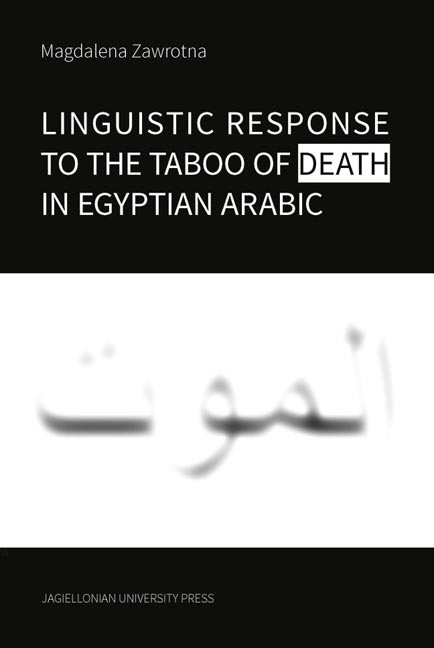Book contents
- Frontmatter
- Contents
- 1 Transcription system
- 2 Introduction
- 3 What is formulaicity?
- 4 Material
- 5 State of research
- 6 Structural notes
- 7 Qualitative analysis of death announcements, comments containing condolences and their responses
- 8 Recapitulation of the analysed material
- 9 Death and the agency of God
- 10 The taboo of death
- 11 Summary
- 12 Questions for further exploration
- Bibliography
- Miscellaneous Endmatter
9 - Death and the agency of God
Published online by Cambridge University Press: 14 October 2023
- Frontmatter
- Contents
- 1 Transcription system
- 2 Introduction
- 3 What is formulaicity?
- 4 Material
- 5 State of research
- 6 Structural notes
- 7 Qualitative analysis of death announcements, comments containing condolences and their responses
- 8 Recapitulation of the analysed material
- 9 Death and the agency of God
- 10 The taboo of death
- 11 Summary
- 12 Questions for further exploration
- Bibliography
- Miscellaneous Endmatter
Summary
In this section I will discuss a specific phenomenon of Arab (and Egyptian) culture, namely, the reference to God and his constant presence in human life. This theme is essentially related to the issues previously mentioned, and particularly to the relation between human fears and linguistic behaviour arising from them. The necessary element of this relation in Arab culture is supernatural agency: the relentless action of God and, on the other hand, his sinister powers. Considering the paucity of material on the linguistic behaviour of Egyptian Christians in the available literature, only references to Islam and Islamic values are made, which, of course, constitute a serious drawback and calls for more studies in the future.
In this section a term “positive transmission” will be used with reference to the idea of communication based on conveying blessing between interlocutors or evoking divine agency and help when it is needed in human life. This springs from the deeply rooted belief that baraka ‘blessing’ is an active power able to protect people from the sinister forces that are similarly active in the world. Baraka is believed to support people in their everyday endeavours and give them the power to overcome obstacles. Linguistic expressions with reference to God and his baraka are among the performative acts so, in other words, they are believed to have the power to change the state of affairs in human reality, whether social or spiritual. This section also partly discusses certain aspects of Arab culture that have an impact on the way they communicate. The first of these will be the specific way of seeing reality, which includes the humble acceptance of misfortune, the fact associated with the belief that human destiny is guided by God and nothing people do can change it.
Transmission of baraka
Baraka is a force present in the sacred words of the Quran (hence amulets containing Quranic passages) used for many different purposes (Hamady 1960: 167). It is a magical power, and yet constantly present in the everyday life of Egyptians as well as in their language. Many of the examples analysed here were of Quranic origin:
(454) fī ǧannātin wa nahr wa miqʿad ṣidqin malīkin muqtadir ‘In the midst of gardens and rivers in an assembly of truth, in the presence of a sovereign omnipotent’.
- Type
- Chapter
- Information
- Linguistic Response to the Taboo of Death in Egyptian Arabic , pp. 125 - 132Publisher: Jagiellonian University PressPrint publication year: 2021



